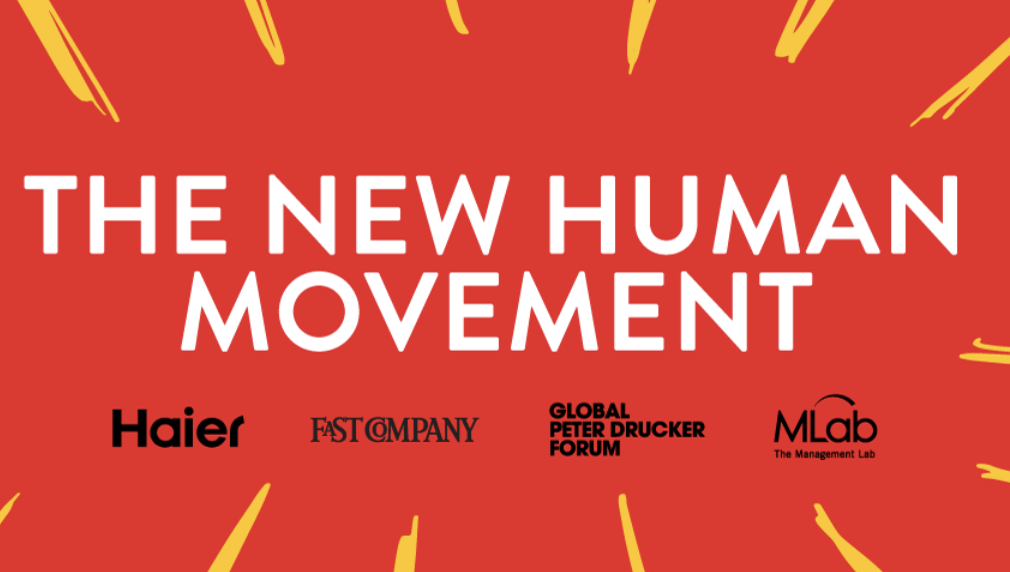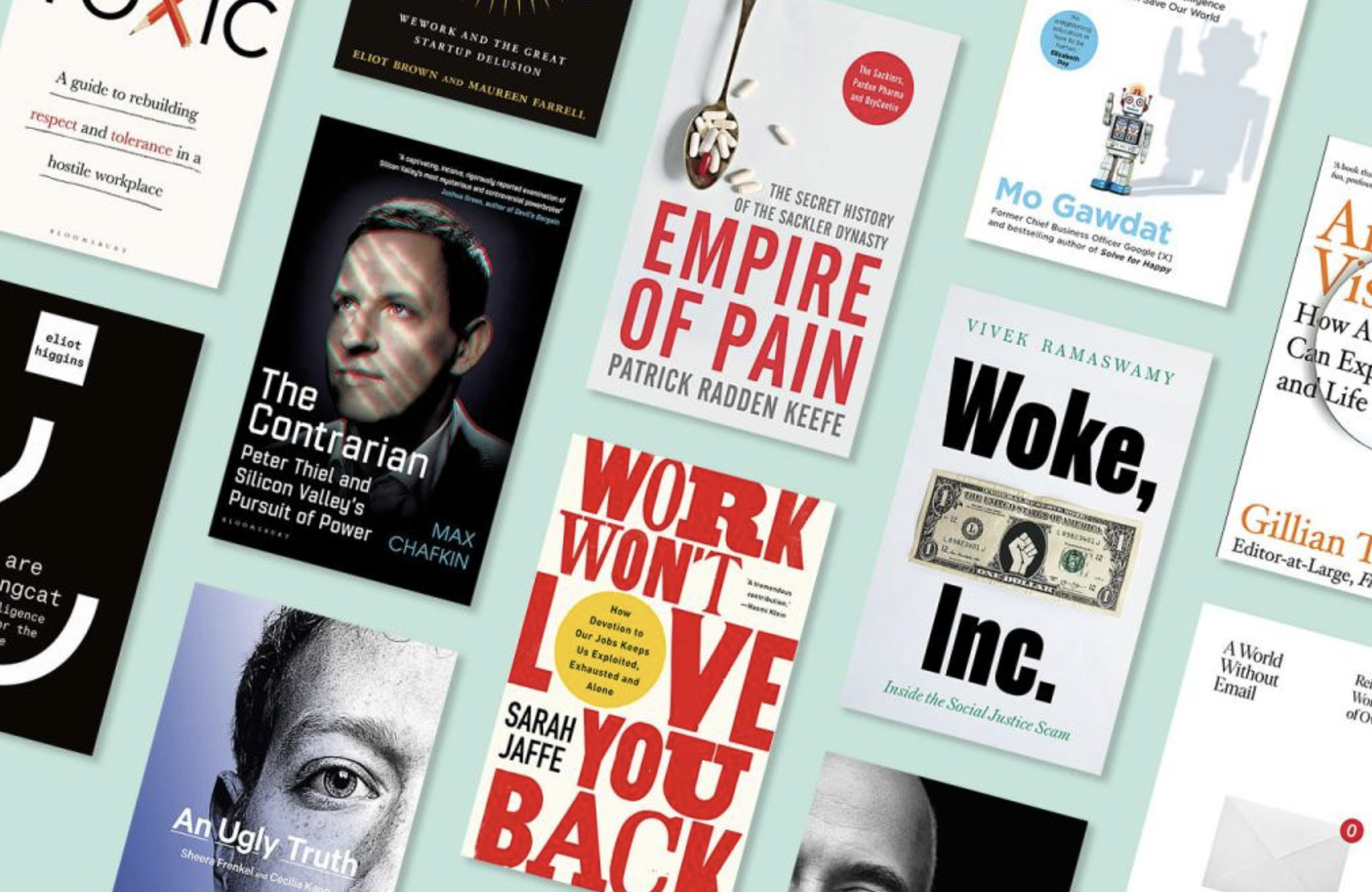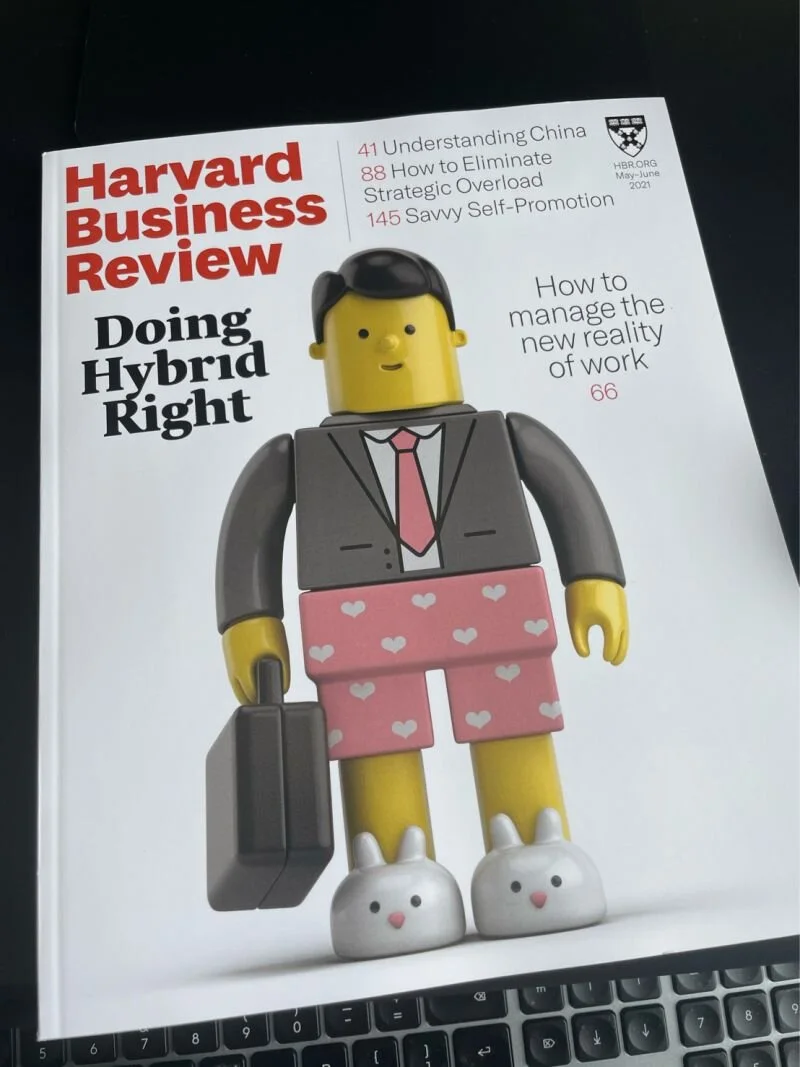Every month, we track down the best smart-thinking resources; featuring writers, authors, thinkers and speakers who are doing cool things and (event better) sharing them for free. In keeping with the Smorgasbord theme, we think of these as some ‘snacks’, for the mind. So, when you get a few minutes in the garden, on the train, or in the car, these might help you pass the time in smart company. If you spot something smart we should include here, let us know. Full reviews are on The Smorgasbord.
The New Human Movement
The following just landed from the authors of Humanocracy (reviewed here). “At present, few organisations measure up to the unprecedented challenges facing humanity in the 21st century. When confronted with disruptive change, they often prove to be timid, inertial and incremental. This is the legacy of bureaucracy, with its top-heavy power structures and rule-choked processes. We need, and deserve, better. But getting from here to there won’t be easy. Hence the New Human Movement.” Launched by Gary Hamel & Michele Zanini, a new series of videos has just been released featuring bold thinkers and radical doers who are reimagining work, leadership and organization for a new age. These include Eric Ries, Zeynap Ton and Paul Polman and I guess, many more to follow. You can get episode one here:
HBR at 100 coming soon
OK, so this is worth a look. Harvard Business Review is celebrating its centenary! Gary Hamel, an esteemed Professor at London Business School, shares that he is honoured to be included as one of the article authors (Strategic Intent, co-authored with CK Prahalad) to appear in a new compendium of the 100 most important articles in the history of HBR. Other authors include: Michael E. Porter on competitive strategy, Clayton M. Christensen on disruptive innovation, Tim Brown on design thinking, Linda A. Hill on being a first-time manager, Daniel Goleman on emotional intelligence, Erik Brynjolfsson and Andrew McAfee on artificial intelligence, Robert Livingston on racial equity at work, Amy C. Edmondson and Mark Mortensen on psychological safety, Robert B. Cialdini on the science of persuasion, W. Chan Kim and Renée Mauborgne on blue ocean strategy and Peter F. Drucker on managing yourself. Its available for pre-order from HBR and other sellers.
Longevity, Pandemics and DOOM
LBS Professor Andrew J Scott recently interviewed mega-brain, historian, commentator and writer Niall Ferguson, who reflects on his work, the Corona pandemic, prompted by his challenging new book DOOM: The Politics of Catastrophe, about a history of wars, disasters and dystopias. For Ferguson “history didn’t end in 1989” and the subsequent discussion is fascinating, particularly his punchy views on the Corona pandemic, climate change, unexploded volcanoes, and what Corona tells us about the geo-political landscape, and rather worrying future. There are a whole series of other resources hosted on the site by The Longevity Forum. You can see more here:
Sunday Times Best Business Books of 2021
The Times and Sunday Times have just listed their Best Business Books of the year. It’s a fascinating selection and we would share directly if the The Times didn’t insist on their paywall barrier. We have heard great things (if that is the right way to put it?!) about Empire of Pain – which seems to follow a corporate horror-thread started by John Carreyrou’s terrific Bad Blood and Reeves Wiedeman’s Billion Dollar Loser, and the mind-boggling The World for Sale (Blas & Farchy) in uncovering the unpalatable side of business, full of shady characters, misdeeds, avarice and greed. Our current favourite The Cult of We (Brown & Farrell) also makes the Sunday Times’ listing, building out the WeWork story even further. Brad Stone’s “sequel” to The Everything Store, called Amazon Unbound, is included, as well as The Smorgasbord’s top rated and author of Deep Work, Cal Newport’s new book about A World Without Email. Finally, Work Inc., and We Are Bellingcat are titles that are new to us and will be sought out when the 2020 backlog clears! The full listing is here:
Empire of Pain: The Secret History of the Sackler Dynasty by Patrick Radden Keefe
Work Won’t Love You Back: How Devotion to Our Jobs Keeps Us Exploited, Exhausted and Alone by Sarah Jaffe
The Cult of We: WeWork and the Great Startup Delusion by Eliot Brown and Maureen Farrell
An Ugly Truth: Inside Facebook’s Battle for Domination by Sheera Frenkel and Cecilia Kang
Amazon Unbound: Jeff Bezos and the Invention of a Global Empire by Brad Stone
Scary Smart: The Future of Artificial Intelligence and How You Can Save Our World by Mo Gawdat
Anthro-Vision: How Anthropology Can Explain Business and Life by Gillian Tett
Woke, Inc: Inside the Social Justice Scam by Vivek Ramaswamy
A World Without Email: Reimagining Work in the Age of Overload by Cal Newport
Toxic: A Guide to Rebuilding Respect and Tolerance in a Hostile Workplace by Clive Lewis
The Contrarian: Peter Thiel and Silicon Valley’s Pursuit of Power by Max Chafkin
We Are Bellingcat: An Intelligence Agency for the People by Eliot Higgins
In Office/Space, no one can hear you scream
Your Smorgasbord editor has spent the late summer lying on a beach, reading pot-boiler thrillers and trashy drama. He’s now back in a darkened room, surrounded by new books, ready to be consumed, while illuminated by an angle-poise lamp. The fresh smell of the texts thrills and the tales are as tall and dramatic as the summer blockbusters. We are invested in two main areas of exploration; OUTER SPACE and OFFICE SPACE. First off, two great books about WeWork and its enigmatic (other epithets are available) founder Adam Neumann; a ‘visionary’ leader who created a cult like following, not just from his dedicated employees and colleagues, but amongst billionaire financiers, who fell for a man who could sell coals to Newcastle. So, we are deep into The Cult of We by Eliot Brown and Maureen Farrell and revisiting last year’s Billion Dollar Loser by Reeves Wiedeman. Not content with ego driven inflated corporate real estate, we are also off exploring the earth from orbit, with three new titles; The Space Barons, by Christian Davenport, Ashlee Vance’s biography of Elon Musk (now in paperback and refreshed) and a dense case-study rich deep-dive into the industrial potential and reality of space exploration; Space is Open for Business by Robert C Jacobson. Only time will tell if Space X, Blue Origin and Virgin Galactic will be the next trillion dollar enterprises which re-shape our lives, or woeful tales of graven hubris, machismo and regret…like WeWork. The books are compelling and a full review of The Cult of WeWork will follow on the Smorgasbord shortly.
FT Book of the Year 2021 - the longlist
This year’s longlist for the Financial Times and McKinsey Business Book of the Year Award has been released. The FT whittled down 600 books to a long-list of 15, which will now be reviewed by a panel, including London Business School’s Herminia Ibarra. It’s a suitably heavyweight, ‘disaster’ themed listing, with a few yet to be released pandemic/climate themed blockbusters, including, Gregory Zuckerman’s forthcoming A Shot to Save the World and The New Climate War, by Michael Mann. The World for Sale, by Javier Blas and Jack Farchy, is the blistering tale of a clutch of hard-charging international commodity trading houses makes the list. We have already reviewed this wonderful book on the Smorgasbord and have high-hopes it might win, though suspect the new huge behavioural work Noise by Daniel Kahneman and colleagues will get the nod.
Other contenders include: Nicole Perlroth’s cheerfully titled This Is How They Tell Me the World Ends about the growing threat posed by the arms race between cyber criminals, spies and hackers. The Aristocracy of Talent, by Adrian Wooldridge takes issue with the backlash against meritocracy. In Robert Livingston’s book The Conversation, he examines how to turn difficult discussions about race, at work and in society in general, into meaningful promotion of change and racial justice. The Cult of We by Eliot Brown and Maureen Farrell digs deep into the story of Adam Neumann, the founder of WeWork, though we think it sounds a little like Reeves Wiedeman’s terrific Billion Dollar Loser. The winner will be announced on December 1.
The future of work?
LBS’s Lynda Gratton, a genuine business thinking guru, top rated ‘Thinkers 50’ thought-leader and writer of numerous thoughtful books about work, working and idea generation, made the cover of the recent Harvard Business Review. Or, rather she didm’t - but this rather nattily dressed Lego commuter did for her cover piece, Doing Hybrid Right. Lynda argues that leaders are embracing a once-in-a-lifetime opportunity to reset work using a hybrid model. To make this transition successfully, they’ll need to design hybrid work arrangements with individual human concerns in mind, not just institutional ones.
Leaders also need to conceptualize new work arrangements along two axes: place and time. Millions of workers around the world this year have made a sudden shift from being place-constrained (working in the office) to being place-unconstrained (working anywhere). Employees have also experienced a shift along the time axis, from working synchronously with others 9 to 5 to working asynchronously whenever they choose.
If leaders and managers can successfully make the transition to an anywhere, anytime model, the result will be work lives that are more purposeful and productive
FT Post-Pandemic Books!
Andrew Hill at the FT has created a super list of “post-pandemic” reading.
He writes: “It is too soon to say we have entered a post-Covid world, but it is never too soon to prepare for the future. So to celebrate the launch of this year’s Financial Times and McKinsey Business Book of the Year Award, we asked longlisted, shortlisted and winning authors to choose a book to add to a post-pandemic reading list.” The books include dystopian science fiction, yet another book about Amazon, and an extraordinarily dense (and much anticipated book) called DOOM: The Politics of Catastrophe by Niall Ferguson and a new book about professional couples, called Couples That Work. There are some great suggestions on the list and the FT Book award shortlist is always worth a browse. You can find out more here: [link to the FT article].
Radar from nexxworks
One the of the best smart-thinking resources released in 2021 is ‘Radar’, an entertaining podcast brought to you by nexxworks. Featuring Smorgasbord 250 author Peter Hinssen, as well as Steven Van Belleghem, Pascal Coppens, Julie Vens - De Vos, Laurence Van Elegem and Joren Lemiegre’ their monthly podcast brings you the latest developments in business, technology and everything related to innovation. The ‘round-table’ approach is irreverent and witty, with less of the sombre tone of some other ‘tech’ focused podcasts. They riff on the NFT hype, selling cars online, China’s new five year plan, Disney beating Netflix, the challenges of gig workers and gig platforms, the flawed music industry, hydrogen cars, the carbon footprint of companies, the re-greening of deserts and Zoom-free Fridays!
As we post, they are producing their third edition. We hope it continues!
DEEP QUESTIONS with Cal Newport
We have reviewed DEEP WORK by Cal Newport and enjoyed his other books, including So Good They Can’t Ignore You and his more recent A World Without Email. Cal also produces an intriguing podcast that was recommended to us. Cal himself describes it this way : “For over a decade I’ve been writing about work, technology and the deep life in my bestselling books and national publications such as the New Yorker and New York Times. Now it’s your turn to drive the conversation! In my Deep Questions podcast, I answer queries submitted directly from my readers on any of the topics for which I’m known. I also bring on the occasional expert guest host to help me with my answers, and provide a glimpse into what’s going on in my own life, including future projects and my own pursuit of depth.” Flipping the podcast format around (like a flipped classroom) makes the format fascinating and quirky. Clear space in your deep-work diary planner to try it!
Scott Galloway - No Mercy / No Malice
Each week, bestselling author and business professor Scott Galloway shares his take on tech and relationships in the digital economy. Scott, sometimes nicknamed “the Big Dog” or “Prof G” is a provocative, outspoken and passionate Professor of Marketing at NYU Stern. He is the Bestselling Author of The Four (Smorgasbord listed) and "Algebra of Happiness" and a new book called Post Corona, which sounds intriguing. Anyway, for the price of entering your email on his website, you can sign up for his weekly mailer called No Mercy No Malice. We are not sure we know of anyone else who sends thought-bombs out at the rate he does; and while his take on big tech, marketing, enterprise leadership and politics is not to everyone’s taste, he certainly packs a punch! [His excoriation of WeWork, its valuation and the avarice of hits founder in 2019, was something to behold]. Anyway, you can find the link to his e-mailer here and as a tease, we have shared a favourite Prof G video, explaining why you should NOT follow your passion.
UNIQ thinking about how executives learn
New research from London Business School challenges long-held assumptions about executive development – and sheds new insights on where the magic really lies. The 70/20/10 principle is a timeworn axiom in learning and development. This is the theory that most development occurs through challenging work assignments (70%), some through personal interaction with mentors and colleagues (20%), and a meagre fraction (10%) through formal training programmes. A major piece of LBS research drawing on the findings of a survey of more than 800 alumni and executives from a multinational banking and financial services organisation has led to the formulation of a new framework for executive development called ‘UNIQ’. Designed by LBS’s Julian Birkinshaw, you can find out more here.













